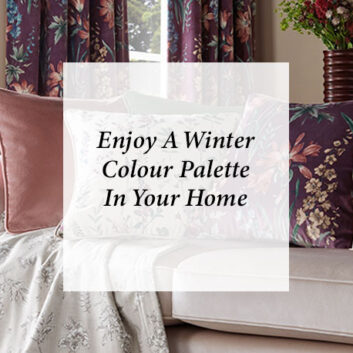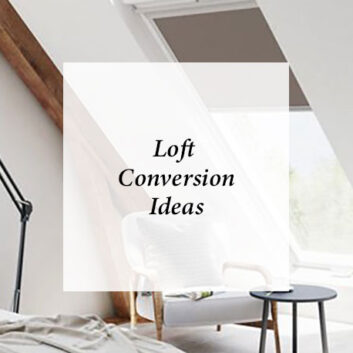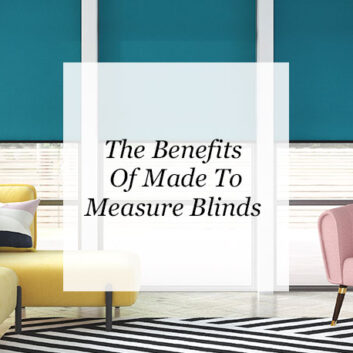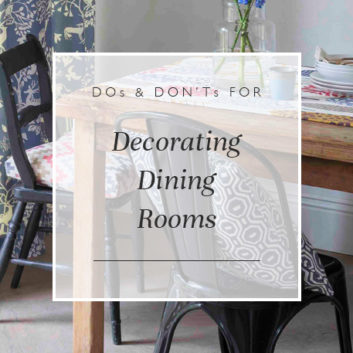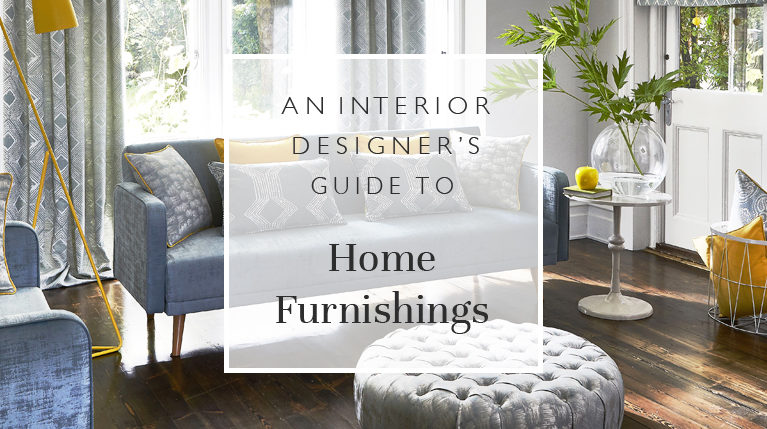
An Interior Designer’s Guide To Home Furnishings
“The details are not the details. They make the design.” – Charles Eames
While you might think your cushions and curtains play a relatively minor role in the overall look of your home, they are in fact a vital part of your interior design. These additional pieces, no matter how small, have the distinct ability to amalgamate the four corners of a room and create a truly beautiful space.
Achieving a particular interior look is easier than you might expect. Much of the time, you needn’t undertake a full home overhaul. In fact, simply switching up soft furnishings can totally transform the style and mood of a room.
We can break down the details into three sections. These primary aspects are your window dressings, cushions and throws, and rugs. Whilst wallpaper and large items of furniture can also dictate the overall feel of a space, it is these textures and colours that pull a look together, and channel your chosen design style.
We’re taking a look at each of these soft furnishings and offering expert insight, helping you to freshen up your space with the most simple yet effective methods. Read on to discover our interior designer’s guide to home furnishings…
Window Dressings
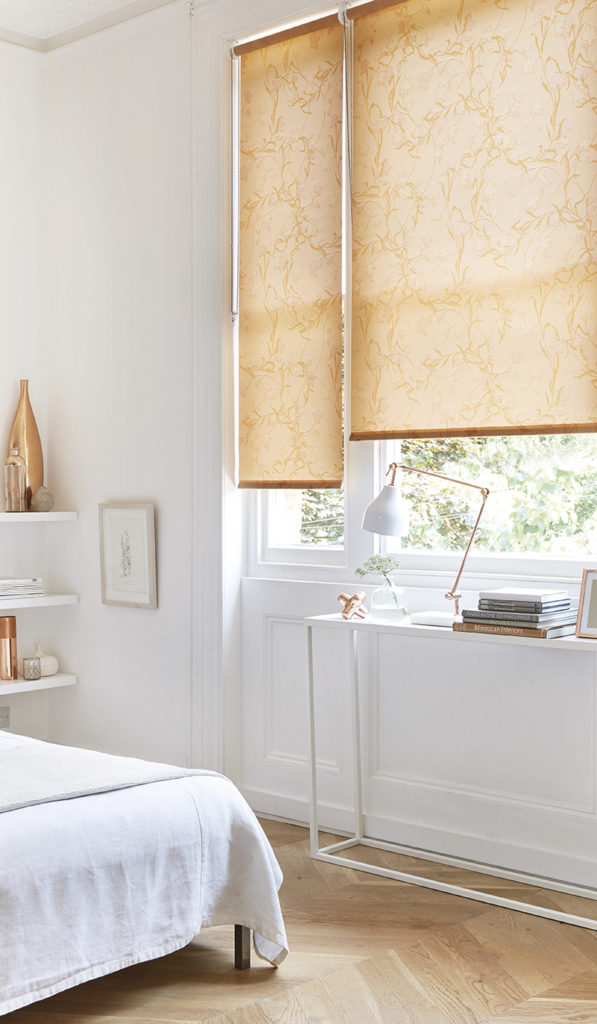 A window without a furnishing is a room incomplete. Whether you opt for thick fabric, voiles or wooden venetian blinds, adding a window dressing will bring personality to the space. We’re all aware that our mood is influenced by our surroundings, including the amount of natural light we’re exposed to. With that in mind, it’s obvious that window treatments affect our lifestyles, allowing us to enjoy sunny afternoons, block unwanted glare, and enjoy a restful night’s sleep.
A window without a furnishing is a room incomplete. Whether you opt for thick fabric, voiles or wooden venetian blinds, adding a window dressing will bring personality to the space. We’re all aware that our mood is influenced by our surroundings, including the amount of natural light we’re exposed to. With that in mind, it’s obvious that window treatments affect our lifestyles, allowing us to enjoy sunny afternoons, block unwanted glare, and enjoy a restful night’s sleep.Window dressings play a leading role in pulling a room together. They are more than just functional pieces of fabric. Your choice of blind or curtain will have a dramatic effect on the space, not only controlling light and offering privacy, but bringing colour, texture, depth and warmth.
When selecting your window furnishings, consider the direction of sunlight and whether it’s strong or obscured. This will inform you of whether you need a blackout, translucent or thermally efficient solution. You should then think about your requirements in terms of durability, ease of use and safety. Do you have small children or pets? Should your window treatments be water resistant? Is the window high or out of reach? Could a remote controlled, motorised blind be better? It goes without saying that blind cords should always be restrained, but you should also think carefully about blinds installed close to furniture – kids like to climb, after all.
When your functionality boxes are all ticked, it’s time to think about style. Choose between classic, contemporary or trend-led looks, in the specific shade and print that appeases your tastes. Consider the mood and whether you want to channel laid-back relaxation or a more formal environment. Think about materials, and whether you’re keen to utilise natural cottons and woods, or you’re more drawn to sumptuous velvets and sleek metals.
We arrange our blinds and curtains into specific collections, helping customers to discover a style that’s more suited to their home. Those that prefer feminine florals and summery shades will enjoy our beautiful Botanical Collection, while people with a penchant for traditional stripes and elegant jacquards will prefer the classic Appledore Collection. Meanwhile, those that want to incorporate a touch of luxury and sophistication should explore our 1920s Collection, and decorators that prefer natural tones with an exotic twist should look to the Tropical Collection.
Cushions & Throws
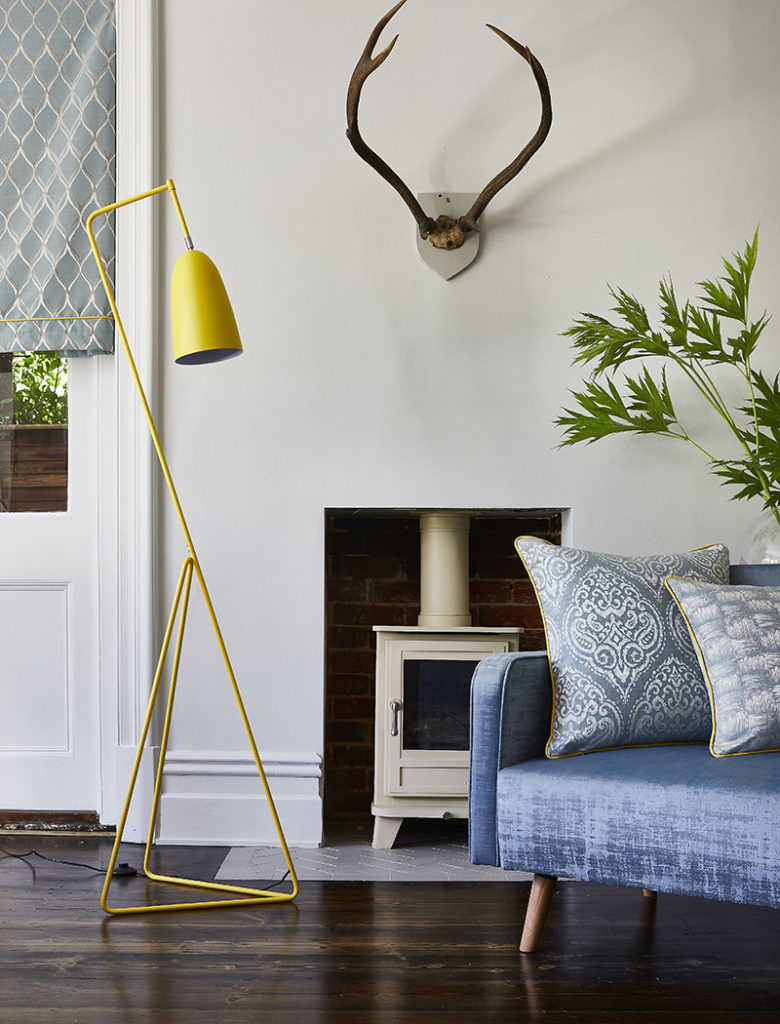 Thick knits and soft cushions aren’t just for the wintertime. Whatever the weather, you can bring texture and interest to your home by incorporating these accessories.
Thick knits and soft cushions aren’t just for the wintertime. Whatever the weather, you can bring texture and interest to your home by incorporating these accessories.
Cushions and throws are one of the quickest and cheapest ways to refresh a space, whether you choose to pile them up in their dozens or create a neat and balanced arrangement. When chosen correctly, these accessories will pull together various elements of your space and bring balance, as well as offering a pop of colour.
There are a number of looks that can be achieved and complemented with cushions and throws. Cable-knits stacked with faux fur create a rustic Scandi style, while mixed metallics and velvets channel 1920s Hollywood glamour. Colourful cushions will brighten up a simple sofa; a contemporary twist for a traditional space! At the same time, a thick neutral throw will help to ground an otherwise eclectic scheme.
We’re reluctant to say there are ‘rules’ to interior design, as every style requires a unique approach. However, with cushions and throws, there is a practice that should always be followed… don’t match them to your sofa! This golden rule ensures that your space doesn’t fall victim to a serious decor fail. Of course, complementary and contrasting additions should be welcomed.
In terms of the number of cushions and throws you invest in, this should be dictated by the size of your space, the number of sofas and armchairs you have, and the overall look you want to achieve. One or two items will offer a laid-back, luxe look, while a large assortment of patterns and colours is more shabby chic.
Rugs
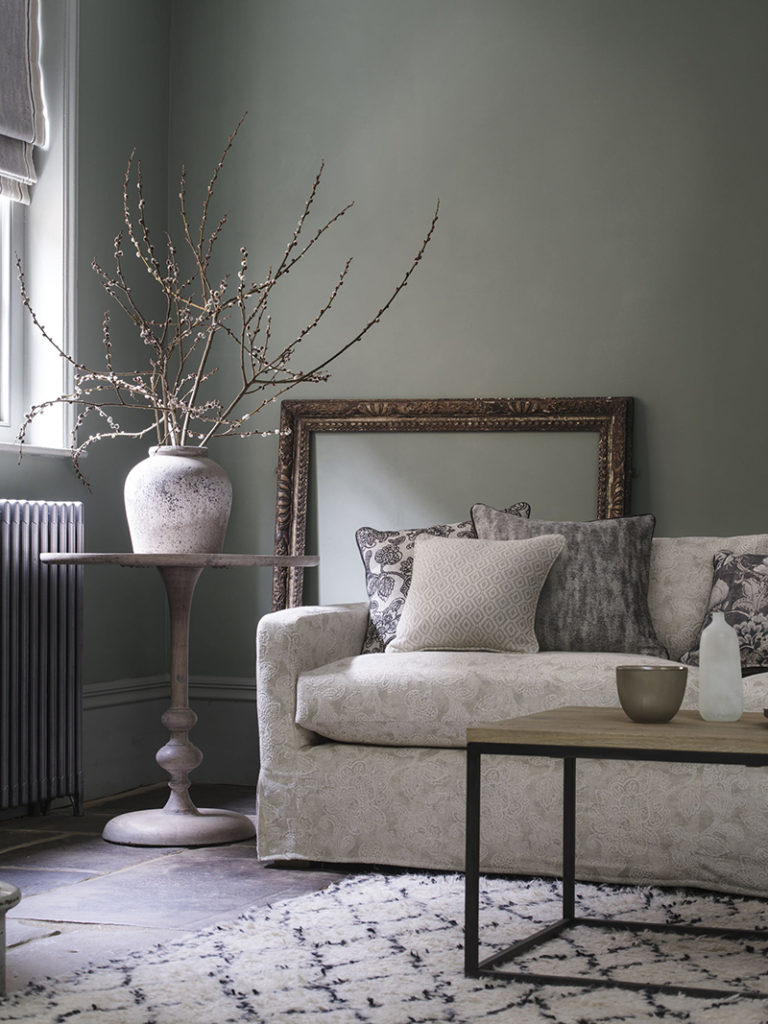 A rug provides an interior design anchor to a room, pulling every other element together, from the wallpaper it complements to the furniture it sits beneath. These multipurpose items can also help to define a space, zoning off an open plan home into specific areas, and highlighting dimensions that make your room look larger and more welcoming.
A rug provides an interior design anchor to a room, pulling every other element together, from the wallpaper it complements to the furniture it sits beneath. These multipurpose items can also help to define a space, zoning off an open plan home into specific areas, and highlighting dimensions that make your room look larger and more welcoming.
The rug you choose can either offer a basis of a colour scheme, or accent the existing palette within a space. It goes without saying that rugs also bring warmth and comfort, and are a welcome addition to hardwood flooring or laminate.
So what should you consider then shopping for a rug? Key points include size, fabric, and basic functionality and safety measures. In terms of size, you shouldn’t scrimp, even if you consider your room to be on the petite side. A rug should define boundaries rather than providing a diminutive pop of colour. Remember that an effectively placed rug will sit underneath your furniture, including sofas and armchairs, rather than floating in the middle of pieces.
With regards to fabric, there is a wide range of different materials and textures to choose from, from faux furs and silk weaves to jute mats and seagrass. Consider the function of the space, which will help to inform your fabric decision. You should also bear functionality in mind when it comes to rug pads and heavy footfall. If you’re investing a considerable amount in a luxurious rug, be sure not to place it in an area that experiences a lot of traffic.
Are you looking for interior design inspiration? Be sure to explore our full range of curtains, window blinds and home accessories. You can also get in touch with a helpful team for more advice.



